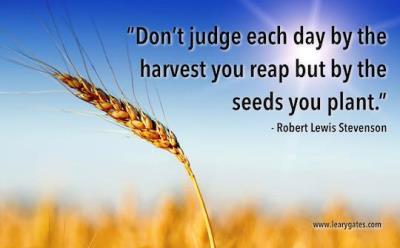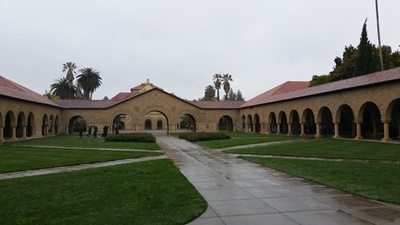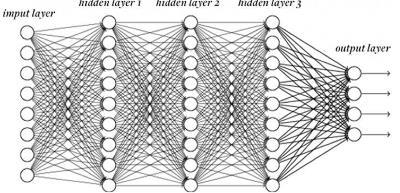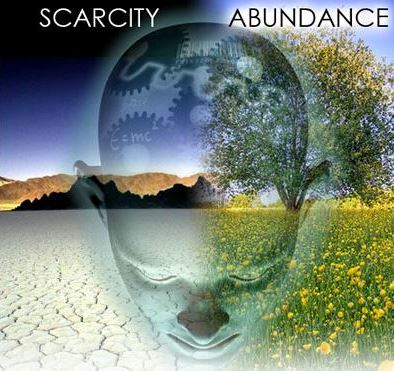Jeremie Averous's Blog, page 73
June 15, 2017
How it is Important to Always Sow Seeds Rather Than Seek to Reap
I like this beautiful quote by Robert Louis Stevenson: “Don’t judge each day by the harvest you reap but by the seeds that you plant.”
 It is too true that we often focus on the result, on the outcome but sometimes forget that what is important is to sow the seeds continuously. Now some of these seeds will grow and fructify, and some (many) will not. Nevertheless as it is always difficult to know which ones will grow, it is better to sow more than we would strictly need.
It is too true that we often focus on the result, on the outcome but sometimes forget that what is important is to sow the seeds continuously. Now some of these seeds will grow and fructify, and some (many) will not. Nevertheless as it is always difficult to know which ones will grow, it is better to sow more than we would strictly need.
I find this sentence to be particularly applicable in the field of creativity and entrepreneurship. It is important to continuously sow some seeds. Some will unexpectedly grow beyond our expectations. In any case we will have created avenues of growth for the world and brought a contribution to other people.
Let’s sow more. And we’ll reap more eventually… but that is not what is the most important.

June 13, 2017
What Changed Since the Last Time I Came to Stanford
Lately I had the opportunity to travel for business to Palo Alto California close to the Stanford University campus and have a walk there. Last time I was there was… 23 years ago! And as usual when we suddenly come back to past places I realized how much things had changed over those 23 years:
 I did not have email in those days even within the university and research community. We could only do ftp to connect to other computers, sometimes
I did not have email in those days even within the university and research community. We could only do ftp to connect to other computers, sometimesTo communicate overseas with my family I sent a weekly handwritten fax over, and invested in a MCI long distance calling card for one weekly call
Amazon did not exist of course so the reason for me to go to Stanford was to visit the well-stored Stanford University bookstore to look for specialized books in my field which I struggled to find otherwise
The spirit in Palo Alto is all about startups which was not yet so much the case in the early 90s. Now you can’t go anywhere without people mentioning about startups and new IT stuff
Some things also don’t change much like the main buildings of the university. But it is sometimes amazing to think how that can remain steady when there is so much change around in particular with Stanford being at the epicenter of the Fourth Revolution!

June 10, 2017
How Machine Learning Will Lead to More Conformity and Less Creativity
One thing most people forget is that machine learning, the essence of today’s Artificial Intelligence (AI), is basically about reproducing the same patterns than the ones fed during the learning process.
 A typical machine learning neural network
A typical machine learning neural networkTherefore, the introduction of AI will first lead to an increase of conformity. Anything outside of the ordinary (i.e. outside of the set of circumstances used for the learning process) will cause problems, misbehavior and defects.
If we draw this observation further, it will not be possible to have AI achieve any kind of disruption. Disruption can be created by the human mind, as history shows. So, for a while there will be a significant difference between AI and the human mind: the ability to think out of the box and to create disruptive patterns. Or, what is exactly is generally covered under the word ‘creativity’.
The massive irruption of AI in our lives will force some amount of conformity on us and that is a danger. At the same time, creativity will remain an unrivaled feature of the human mind.

June 8, 2017
How Greatness Brings With It the Seeds of Destruction
Robin Sharma wrote about Marcus Aurelius’s quote “After fame is oblivion“: “What I’ve learned as I deconstruct empires of geography, creativity, productivity and prosperity that have fallen is this: the very fact of greatness brings with it the danger of destruction.”
 Clay foot of fallen colossus
Clay foot of fallen colossusIt is amazing how that is often true. It might be linked to a feeling of superiority and being invincible; or from the fact that people or organizations simply take advantage of the benefits of their position without striving anymore for improvement.
It happens often and is actually quite good news for upcoming competitors, and it participates to the renewal of successful people and organizations. Some rare successful individuals and organizations are able to keep the fire and the restlessness to continue to improve.
When we are successful in some area, this is a choice to be made. And it needs to be conscious.

June 6, 2017
How Machines Are Rising in Financial Institutions
This NY Times article ‘At BlackRock, Machines Are Rising Over Managers to Pick Stocks‘ says it all. Traders are being replaced by machines. Or indeed, by less glamour teams of programmers.
 As the article explains this is indeed a defensive move by the bank as “actively” managed funds bringing in high management fees are much less successful nowadays (studies have long shown that the returns of actively traded funds are mostly driven by luck anyway).
As the article explains this is indeed a defensive move by the bank as “actively” managed funds bringing in high management fees are much less successful nowadays (studies have long shown that the returns of actively traded funds are mostly driven by luck anyway).
It is thus a drive towards lower costs. But due to the traders’ remuneration this move might actually create more programmers jobs than reduce traders jobs!
The interesting part of this situation is that the increasing access to information is making professions that had better access obsolete. This was the case for financial traders, and they do become obsolete, together with their Adrenalin-laden world.

June 3, 2017
How to Create Disruption With Small Steps
In a complex world disruption does happen, always with far reaching consequences. But creating disruption is hard. I am in the midst of an experiment with my venture CleanuC (trying to disrupt the way the nuclear industry tackles decommissioning) and it is tough to change things although it would seem the system should be ripe for change.
 One way to look at creating disruption is to proceed with small steps. This might seem paradoxical, but I truly believe that it is the right way to go. Proceeding with small steps relies upon experimenting, gauging the reactions of various stakeholders and improving the model until reaching a condition that is ripe enough to create a real tipping point. It is a bit similar to the Lean Startup concept of product development, in that case it is about disruption.
One way to look at creating disruption is to proceed with small steps. This might seem paradoxical, but I truly believe that it is the right way to go. Proceeding with small steps relies upon experimenting, gauging the reactions of various stakeholders and improving the model until reaching a condition that is ripe enough to create a real tipping point. It is a bit similar to the Lean Startup concept of product development, in that case it is about disruption.
Moreover the small steps approach is also deeply antifragile as underlined by Valeria Maltoni in this excellent post ‘How Small Things Make a Big Difference‘ that serves as an inspiration to this particular post.
Proceeding with systematic small steps, with perseverance, is not contradictory with huge disruptions. It is just a way to reach more effectively the tipping point. When do you start the first small step for a big change?

June 1, 2017
How Daring Ideas May Be Beaten, And Start a Winning Game
Following on our previous post ‘How to Create Disruption With Small Steps‘ I like to share this quote from Goethe: “Daring ideas are like chessmen moved forward. They may be beaten, but they may start a winning game“.
 I find this quote very inspiring because it shows how we sometimes need to sacrifice some of our ideas in our small steps strategy, and lose some battles in order to win the overall jackpot.
I find this quote very inspiring because it shows how we sometimes need to sacrifice some of our ideas in our small steps strategy, and lose some battles in order to win the overall jackpot.
Actually it is quite necessary to live through small disappointments and setbacks. But if our disruption vision is good enough we will eventually find a way to express and implement it in a way that will win the day.
In our strategy it is essential to know how to sacrifice some stuff that is not so important for what we really believe in. The process might be tough at times, and necessary. Ready?

May 30, 2017
How To Deal With The Illusion of Permanence
While we would like to believe our environment is stable and permanent, reality is more that it is impermanent. Suddenly our conditions may change sometimes drastically.
 Japanese gardens are there to remind us of impermanence
Japanese gardens are there to remind us of impermanenceIn a beautiful post ‘Impermanence‘, Om Swami expands on the struggle with impermanence and the suffering it sometimes creates.
“Sometimes, I wonder why are we so averse to adversities? Anything that doesn’t fall in line with our expectations from life, we label it suffering. […] The real problem is with the unrealistic nature of our expectations; the greatest being our desire that anything good in our life should stay as it is.”
An incident can be our awakening to impermanence. “That’s all you need sometimes, just one incident to awaken you. Just one wake up call to help you see what this samsara truly is – irrational and impermanent. Such a life transforming incident then changes your perspective forever. Your old tendencies still come and haunt you, but the awakened you handles life differently.”
We should lean into change in particular if there is nothing we can do about it and understand that it is the way the world goes. Just remind yourself that nothing is permanent. What we do with it is our choice.

May 27, 2017
How the Collaborative Age Abundance May Change our World
Cory Doctorow excellent Locus column ‘Cory Doctorow: The Jubilee: Fill Your Boots‘ raises interesting questions about the ultimate evolution of society in the Collaborative Age – what I would call the Abundance utopia.
 The point Cory Doctorow makes is that it should be possible to live in a world of abundance leveraging on the rhythms of nature to minimize our environmental impact. The point is then to accept that things don’t necessarily work all the time. This drawback can be compensated by technology coordination.
The point Cory Doctorow makes is that it should be possible to live in a world of abundance leveraging on the rhythms of nature to minimize our environmental impact. The point is then to accept that things don’t necessarily work all the time. This drawback can be compensated by technology coordination.
“Technology hints at another model, one that hybridizes the pre-industrial rhythms of work and play and the super-modern ability to use computers to solve otherwise transcendentally hard logistics and coordination problems.”
“Using bright green, high tech coordination tools, we can restore the pastoral green, artisanal autonomy that privileges mindful play over mindless work. The motto of Magpie Killjoy’s Steampunk zine was ‘‘love the machine, hate the factory.’’ Love the dividends of coordinated labor, hate the loss of freedom we suffer when we have to coordinate with others.”
I strongly encourage the read and the thought that freed from the needs to coordinating large organizations, we could live a life far closer to the rhythms of nature while enjoying abundance.

May 25, 2017
How Important It Is to Exercise Writing Regularly
For some reasons related to being busy on other things I did not write so much during a while in the past few months (blog posts or books or white papers), and the amazing thing is that I found it very difficult to start writing again. And then with some practice writing became easy again!
 It was not writers’ block or anything like that. It was just that I found a strong resistance to start writing. I always found something more urgent to do. I found it difficult to concentrate on writing words together. It was like I was a beginner trying to piece together some sentences.
It was not writers’ block or anything like that. It was just that I found a strong resistance to start writing. I always found something more urgent to do. I found it difficult to concentrate on writing words together. It was like I was a beginner trying to piece together some sentences.
This all goes to show how much writing is a muscle that needs exercising regularly. And with exercise and regular writing it is possible to have substantial production that will improve over time.
Lesson learnt – I will keep exercising my writing muscle regularly and not let it weaken too much in the future!




